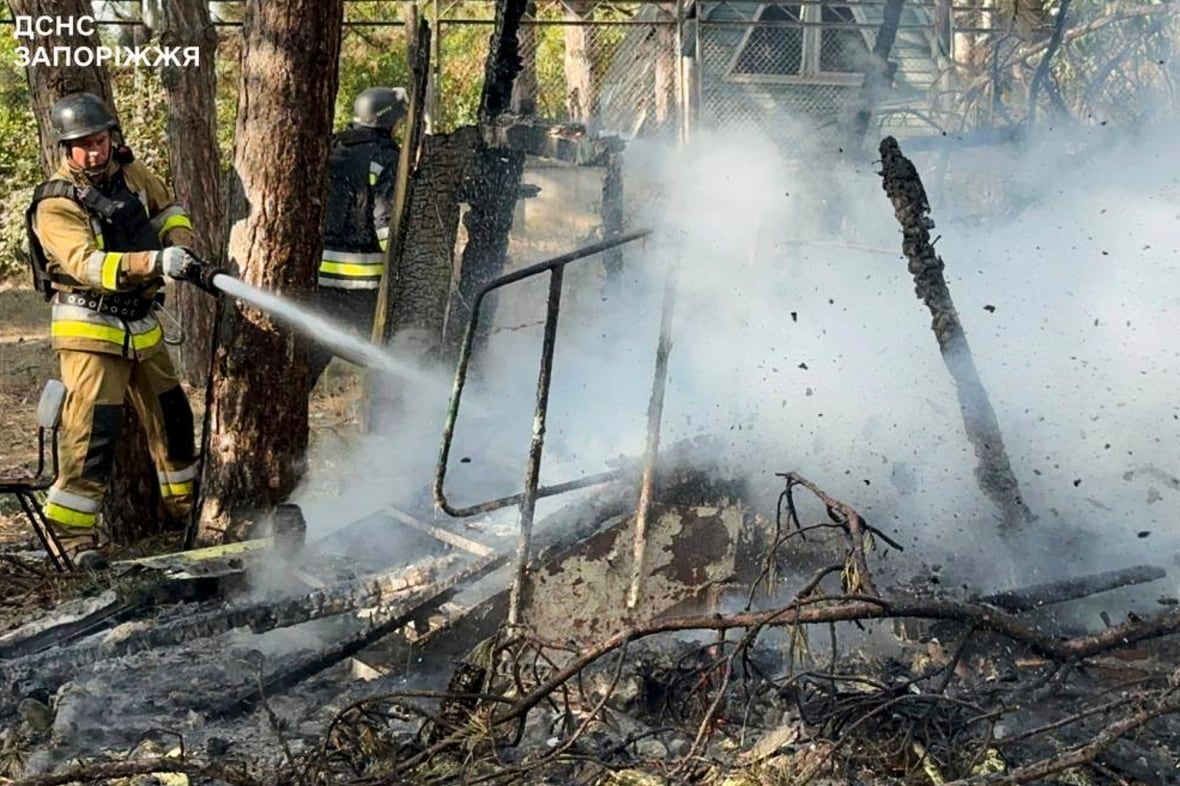
Zelenskyy says any peace deal without Ukraine at the table 'will never work' as Trump and Putin set to meet
Published: 2025-08-09 13:43:51 | Views: 11
Ukrainian President Volodymyr Zelenskyy has dismissed the anticipated summit between U.S. President Donald Trump and Russian President Vladimir Putin, warning that any peace deal excluding Kyiv would lead to "dead decisions."
Zelenskyy made the comments in a statement posted to Telegram on Saturday, a day after Trump said the summit would be held Aug. 15 in Alaska and that he planned to discuss ending the Russia-Ukraine war.
Trump had previously agreed to see Putin even if the Russian leader would not meet with Zelenskyy, stoking fears Ukraine could be sidelined in efforts to stop war.
Zelenskyy said Ukraine "will not give Russia any awards for what it has done" and "Ukrainians will not give their land to the occupier."
Touching on Ukrainian anxieties that a direct meeting between Putin and Trump could marginalize Kyiv and European interests, Ukraine's president said: "Any decisions that are without Ukraine are at the same time decisions against peace. They will not bring anything. These are dead decisions. They will never work."
Ukrainian officials previously told The Associated Press privately that Kyiv would be amenable to a peace deal that would de facto recognize Ukraine's inability to regain lost territories militarily.

In a statement posted to the Kremlin's news channel, Putin's foreign affairs adviser, Yuri Ushakov, referenced the upcoming summit.
"It seems entirely logical for our delegation to fly across the Bering Strait simply, and for such an important and anticipated summit of the leaders of the two countries to be held in Alaska," said Ushakov.
Such a meeting may prove pivotal in a war that began more than three years ago when Russia invaded its western neighbour and has led to tens of thousands of deaths. However, Moscow and Kyiv remain far apart on their conditions for peace.
In comments to reporters at the White House before his post confirming the date and place of the summit, Trump suggested that any agreement would likely involve "some swapping of territories," but he gave no details.
Analysts, including some close to the Kremlin, have suggested that Russia could offer to give up territory it controls outside of the four regions it claims to have annexed.
Trump said his meeting with Putin would come before any sit-down discussion involving Zelenskyy. His announcement that he planned to host one of his country's adversaries on U.S. soil broke with expectations that they'd meet in a third country.
The gesture may give Putin validation after the U.S. and its allies had long sought to make him a pariah over his war against Ukraine.
Nigel Gould-Davies, an associate fellow of Chatham House, a British think-tank based in London, told The Associated Press the "symbology" of holding the summit in Alaska was clear and that the location "naturally favours Russia."
"It's easy to imagine Putin making the point … 'We once had this territory and we gave it to you, therefore Ukraine had this territory and now should give it to us,'" he said, referring to the 1867 transaction known as the Alaska Purchase when Russia sold Alaska to the U.S. for $7.2 million US.
Ultimatums and sanctions
Exasperated that Putin did not heed his calls to stop bombing Ukrainian cities, Trump, almost two weeks ago, moved up his ultimatum to impose additional sanctions on Russia and introduce secondary tariffs targeting countries that buy Russian oil if the Kremlin didn't move toward a settlement.
The deadline was Friday. But the White House did not answer questions that evening about the state of possible sanctions after Trump announced the upcoming meeting with Putin. Prior to that, Trump's efforts to pressure Russia into stopping the fighting had delivered no progress.
The Kremlin's bigger army is slowly advancing deeper into Ukraine at great cost in troops and armour while it relentlessly bombards cities. Russia and Ukraine are far apart on their terms for peace.
Gould-Davies likened attempts to understand what seems to be Trump's latest pivot toward Moscow to "Kremlinology," the Cold War-era practice of deciphering opaque signals from Soviet leadership.
"We're … looking for clues and for hints … about what the hell is going on; what the mix of influences around Trump and indeed in Trump's head is propelling his latest statement," he said.
"It's as if his disillusionment with Putin … never happened," Gould-Davies noted, pointing to a sudden return to the more conciliatory Russia policy Trump embraced at the start of his presidency.
Russia, Ukraine trade attacks
Also on Saturday, two people died and 16 were wounded after a Russian drone hit a minibus in the suburbs of the Ukrainian city of Kherson, regional Gov. Oleksandr Prokudin said.

Two others died after a Russian drone struck their car in the Zaporizhzhia region, according to regional Gov. Ivan Fedorov.
Ukraine's air force said it intercepted 16 of the 47 Russian drones launched overnight, while 31 drones hit targets across 15 locations. It also said it shot down one of the two missiles Russia deployed.
Russia's Defence Ministry said its air defences shot down 97 Ukrainian drones over Russia and the Black Sea overnight and into Saturday, and 21 more later in the morning.
Source link








